-

Food Poisoning
-
Food Poisoning (Acute Gastrointestinal Illnesses)
Viral gastroenteritis is an intestinal infection that includes signs and symptoms such as watery diarrhea, stomach cramps, nausea or vomiting, and sometimes fever. The most common way to develop viral gastroenteritis is through contact with an infected person or by consuming contaminated food or water.
Symptoms and Signs
Symptoms usually last just a day or two, but occasionally they may last up to 14 days, there are:
- Watery, usually non-bloody diarrhea — bloody diarrhea usually means you have a different, more severe infection
- Nausea, vomiting or both
- Stomach cramps and pain
- Occasional muscle aches or headache
- Low-grade fever
-
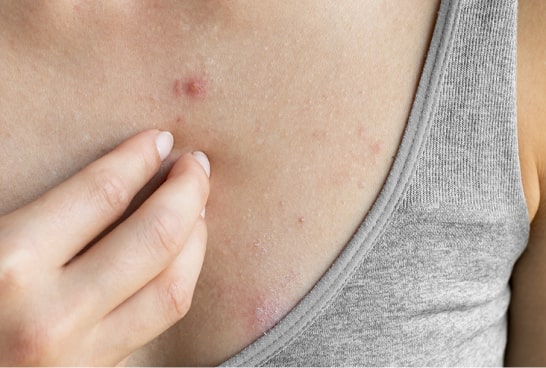
Abscess
-
Abscess
Abscesses can develop on the skin, in the mouth, or even inside the body. They occur when bacteria enter the body and cause an infection. Some abscesses will not need treatment. Others will need to be drained, and a person will need antibiotics to treat the infection.
Symptoms and Signs
Signs and symptoms of an abscess will depend on its location and size. However, the main symptoms include:
- Pain in and around the area of the abscess
- Discoloration around the edges of the abscess
- Swelling
- A hard or soft lump
- A pus-filled center (yellow or white)
- Fluid leaking from the lump
- Tooth pain, if the abscess is in the mouth
- Fever
- Fatigue and chills, especially for an internal abscess
-
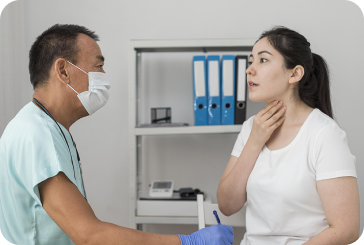
Acute Pharyngitis
-
Acute Pharyngitis
Pharyngitis, or sore throat, is swelling, discomfort, pain, or scratchiness in the throat at and just below the tonsils. It can hurt just to swallow and it is caused by inflammation of the pharynx. When bacteria or viruses get into your throat, they can cause an infection that makes your pharynx swollen, tender, and red.
Symptoms and Signs
The main symptom of pharyngitis is a sore throat, but you may also have other signs of an infection, such as a fever, headache, joint and muscle aches, and swollen glands in your neck.
- Discomfort when swallowing
- Fever
- Joint pain or muscle aches
- Sore throat
- Tender swollen lymph nodes in the neck
-
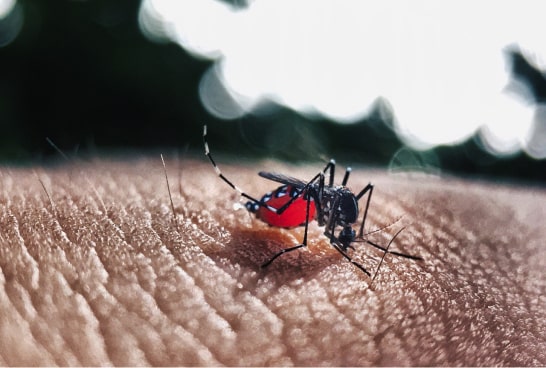
Tropical Disease
-
Tropical Disease
Dengue Fever, Malaria, or Chikungunya are common diseases in the tropical area. It could be bacteria and viruses that cause tropical diseases. Typical symptoms of many tropical diseases share common traits with, diseases found at home and include fever, Muscle Ache, and Headaches. Other common signs to look for include diarrhea, nausea, vomiting, lethargy, chronic fatigue, or skin rashes. All tropical diseases can be found by our laboratory blood test.
Main Tropical Diseases in Thailand
- Malaria: A life-threatening disease caused by parasites that are transmitted through the bites of infected mosquitoes. The symptoms include high fever, headache, and chills.
- Dengue: A mosquito-borne viral infection causing a severe flu-like illness and, sometimes causing a potentially lethal complication called severe dengue. A person infected by the dengue virus comes out with severe flu-like symptoms. The appearances of dengue fever vary according to the age of the patient.
- Leptospirosis: Leptospirosis is a bacterial disease contracted through direct contact with the urine of infected animals or with a urine-contaminated environment. Symptoms include high fever, severe headache, muscle pain, chills, redness of the eyes, abdominal pain, jaundice, hemorrhages in the skin and mucous membranes, vomiting, diarrhea, and rash.
-

Influenza or Flu A/B
-
Influenza or Flu A/B
Influenza or flu is a seasonal flu and contagious respiratory illness caused by influenza viruses. Symptoms include body aches, chills, cough, fever, headache, runny nose, sore throat, and tiredness. Small children, elderly, pregnant women, and anyone with a compromised immune system are the most at risk.
-

Rabies Vaccination
-
Rabies Vaccination
Rabies is a vaccine-preventable viral disease in other mammals such as dogs, monkeys, squirrels, or cats contributing to all rabies transmissions to humans. The disease is almost always fatal as the virus attacks the central nervous system. It is spread via saliva encounter through bites or scratches.
Rabies typically exhibit signs of hyperactivity, excitable behaviors, fear of water, and sometimes fear of drafts or fresh air. Death occurs due to cardio-respiratory arrest in a few days.
Treatment: Effective human vaccines and immunoglobulins exist for rabies, but may not be readily available or accessible as treatment can be expensive or in short supply.
-
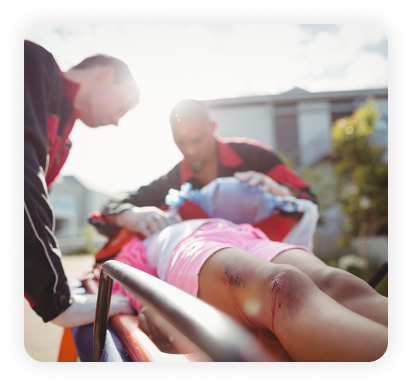
Motorcycle Accident (Traffic Accidents)
-
Motorcycle Accident (Traffic Accidents)
Road traffic injuries are an important public health problem in Thailand. Minor injuries, long-term disability, and even death can be caused by road traffic accidents. At our clinic, we have a professional Emergency Medical Team staff and Ambulance ready to confront any type of traffic accident – 24/7. Call +66955503500 for emergency help needed.
-

Ear Pain and Hearing Loss
-
Ear Pain and Hearing Loss
Acute otitis externa (AOE), also known as swimmer’s ear, is an acute inflammatory reaction that affects the sub-dermis of the external auditory canal and is caused by bacterial infection. AOE hass symptoms (e.g., otalgia, itching, fullness, hearing loss, jaw pain) and signs (e.g., tenderness of the tragus or pinna) indicating inflammation of the ear.
Acute otitis media (AOM) is purulent or suppurative otitis media. As its name indicates, AOM is characterized by fluid in the middle ear region. This infection of the middle ear cavity is associated with signs and symptoms of rapidly emerging acute inflammation. Ear pain (otalgia) and fever are the most common signs seen in AOM.
-
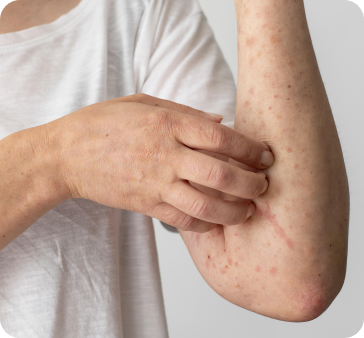
Contact Dermatitis
-
Contact Dermatitis
Contact dermatitis causes the skin to become mild dryness, redness, burning, or stinging of the skin to very painful blisters that can become filled with fluid. Lighter skin can become red, and darker skin can become dark brown, purple, or grey. This reaction usually occurs within a few hours or days of exposure and the type of skin symptoms you get can depend on whether the dermatitis is caused by an irritant or an allergic reaction. It can affect any part of the body but most commonly the hands, face, and legs.
Symptoms and Signs
The area of skin affected by contact dermatitis can become infected. Signs of an infection can include:
- Your rash skin getting rapidly worse
- Tears away from your skin
- Increasing pain and feeling generally unwell
- Feeling warm body or shivery
Seek immediate medical advice if you have a severe reaction, or you think your skin may have become infected, as you may need to take antibiotics.
-
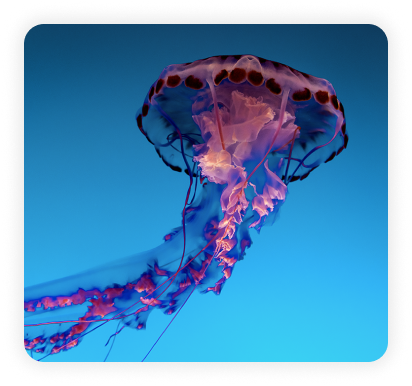
Jellyfish Stings
-
Jellyfish Stings
Jellyfish stings are common problems when swimming, wading or diving at the beach. Most often jellyfish stings cause instant painful and burned marks on the skin. Some stings may cause more systemic illness. And in rare cases they're life-threatening.
Symptoms of jellyfish stings are:
- Burning and painful
- Rash or tracks on the skin — a "print" of the tentacles' contact with the skin
- Itchiness
- Swelling
- Throbbing pain that radiates up a leg or an arm Severe jellyfish stings reactions may appear rapidly or a few hours after the stings. Symptoms of severe jellyfish stings include:
- Stomach pain, nausea and vomiting
- Headache
- Muscle pain or spasms
- Faintness, dizziness or confusion
- Difficulty breathing
Seek emergency treatment if you have severe symptoms.
-

Stingray Stings
-
Stingray Stings
When stung by a stingray, you’ll feel immediate, severe pain at the wound site. You need to begin treating the wound right away if it’s superficial. Stingrays have contained spines on the dorsum of the animal’s tail. Injuries usually occur when an unwary swimmer steps on a stingray buried in the sand and provokes it to thrust its tail, driving the dorsal spine into the patient’s foot or leg. The integumentary sheath surrounding the spine ruptures, and the venom escapes into the patient’s tissues.
Symptoms of stingray stings are:
The main symptom of a stingray sting is extreme pain at the wound site - the pain may spread rapidly, reaching its greatest intensity in less than an hour. Open wounds are subject to infection. The wound is usually active bleeding and often contaminated with parts of the sheath. Weakness, nausea, and anxiety are common and may be due. Sometimes, vomiting, diarrhea, sweating, cramps, and respiratory distress are found in some patients.
Treatment of Stingray Stings
Irrigation and debridement
Stingray stings to an extremity should be gently irrigated with salt water in an attempt to remove fragments of the spine, glandular tissue, and integument. The spine should be removed. Through the emergency department, the wound should be reexamined for remnants of the sheath and debrided; a local anesthetic may be given as needed. Embedded spines are treated similarly to other foreign bodies. Patients stung on the trunk should be evaluated closely for puncture of viscera. Treatment of systemic manifestations is supportive. Tetanus prophylaxis should be given and an injured extremity should be elevated for several days. The use of antibiotics and surgical wound closure may be necessary.
-

Gastritis
-
Gastritis
Gastritis is inflammation in the soft mucous lining of your stomach. Mucosa protects your stomach from acids, enzymes, and microorganisms. When it’s inflamed - gets red and swollen, it means it’s under attack. It might be from an infection, a substance you ingested, or digestive chemicals.
Symptoms may include:
- Loss of appetite, or feeling full soon after eating.
- Stomach pain and bloating.
- Nausea and vomiting
- Feeling of fullness or burning in your stomach
- Blood in your vomit or stool. This is a sign that your stomach lining may be bleeding.
-

Doctor Hotel Visit Service
-
Doctor Hotel Visit Service
Patients who are confined to bed due to illness or old age, who cannot travel to the hospital or clinic for treatment can benefit from our expert home or hotel visiting the Doctor team whenever, wherever you may be.
Our medical team will attend to the patient immediately and provide much needed medical care, with transfer if necessary
-

24-Hour Emergency Medical Service
-
24-Hour Emergency Medical Service
You need professional assistance?
In any unexpected or emergency situation, you can be absolutely assured that our ambulance team with EMTs will arrive as soon as possible; our medical team will administer comprehensive medical care and quickly transport the patient to our clinic or to the hospital if necessary
-
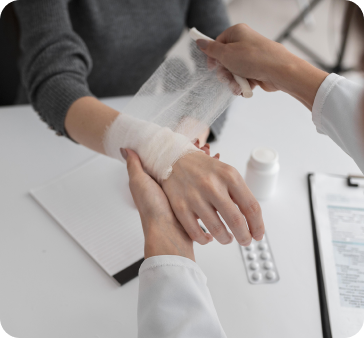
Minor Surgery / Procedure
-
Minor Surgery / Procedure
We provide procedures such as :
- Removal of foreign bodies from superficial wounds, ears, superficial eye, ear, or nose
- Incision and drainage
- Wound Debridement
- Nail extraction
- Stitching and/or removal of stitches for wounds and lacerations